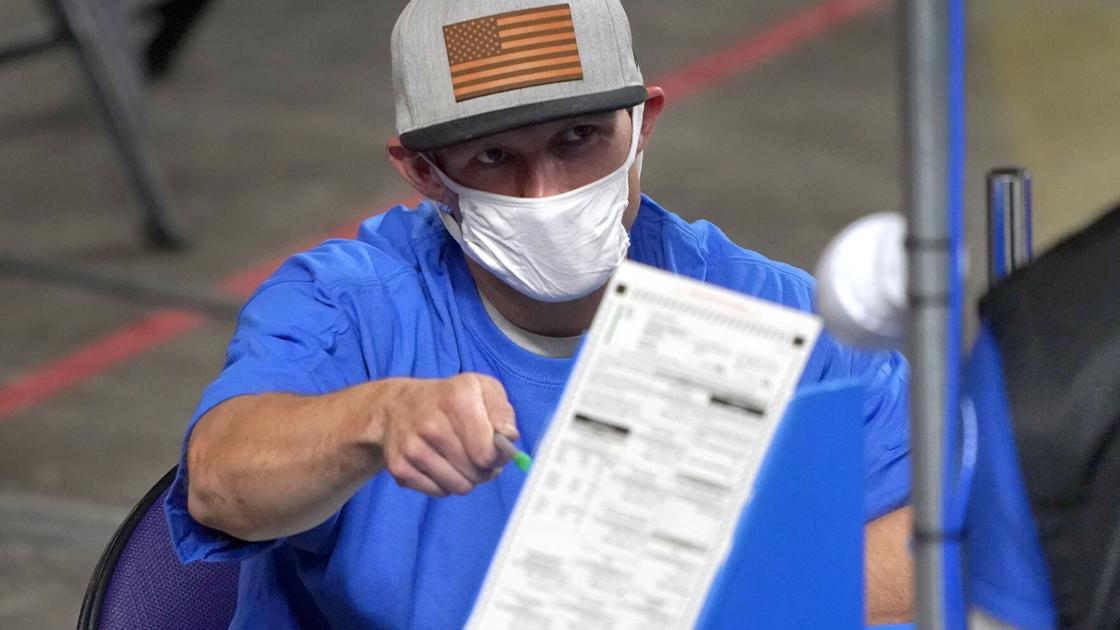Report claiming ‘excess’ Biden votes doesn’t show fraud

THE FACTS: A former army captain’s report that gained traction among some conservatives this week falsely claimed Trump won several states that he lost in the 2020 election. The report, which based its claims on assumptions related to voting and registration trends, provided no proof of fraud.
Nevertheless, it amassed thousands of views on Telegram, Facebook, Twitter and conservative websites, with some headlines claiming it affirmed Trump won Pennsylvania, Michigan, Wisconsin, Nevada, Arizona, Georgia and Minnesota. It was also promoted by Trump’s former chief strategist Steve Bannon and Trump himself, who said the report contained “election-changing” numbers that showed the 2020 election was fraudulent and he actually won “by a LOT.”
Trump has continued to falsely claim he won the election since his loss nine months ago. State officials from both parties, election security experts and former Republican Attorney General William Barr said the election went smoothly with no evidence of widespread fraud.
The report appears to use voting trends, population growth data and registration records to create “heat maps” showing how far the 2020 results diverged from the author’s predictions at the county, state and national levels. However, it doesn’t disclose where these numbers originated or the methods by which the analysis was performed. It claims there was likely “Strong/Rampant” fraud in several states and counties nationwide, but appears to base the claim solely on how different the results were from a prediction, not on any actual examples of fraud.
The author, Seth Keshel, identifies himself on LinkedIn as a tech company sales manager and former baseball analyst but does not identify any election experience. His report acknowledges that the state-by-state tallies of “excess votes” for Biden are “lenient” estimates that demand further research, but frequently repeats the false claim that the numbers suggest fraud.
Harvard University political scientist Gary King reviewed the report and previously reviewed similar election claims from Keshel as part of a lawsuit in Arizona. In both situations, King said, the data showed no evidence of fraud and ignored the reality that voters act in ways that don’t match up with predictive modeling.
“There is zero valuable academic information here,” King told the AP. “Voters, they’re allowed to do what they want. They surprise us. It’s incredible hubris to imagine your model is always right. That’s just crazy.”
University of Georgia political scientist and pollster Trey Hood reviewed the report and came to the same conclusion. “This is certainly no method for uncovering voter fraud,” Hood said. “It doesn’t show anything.”
Contacted for response, Keshel said his analysis was an exhaustive process that took weeks to conduct. He said that given deadlines there was not time to go over the work in detail, but suggested that full forensic audits would help put the matter to rest.


